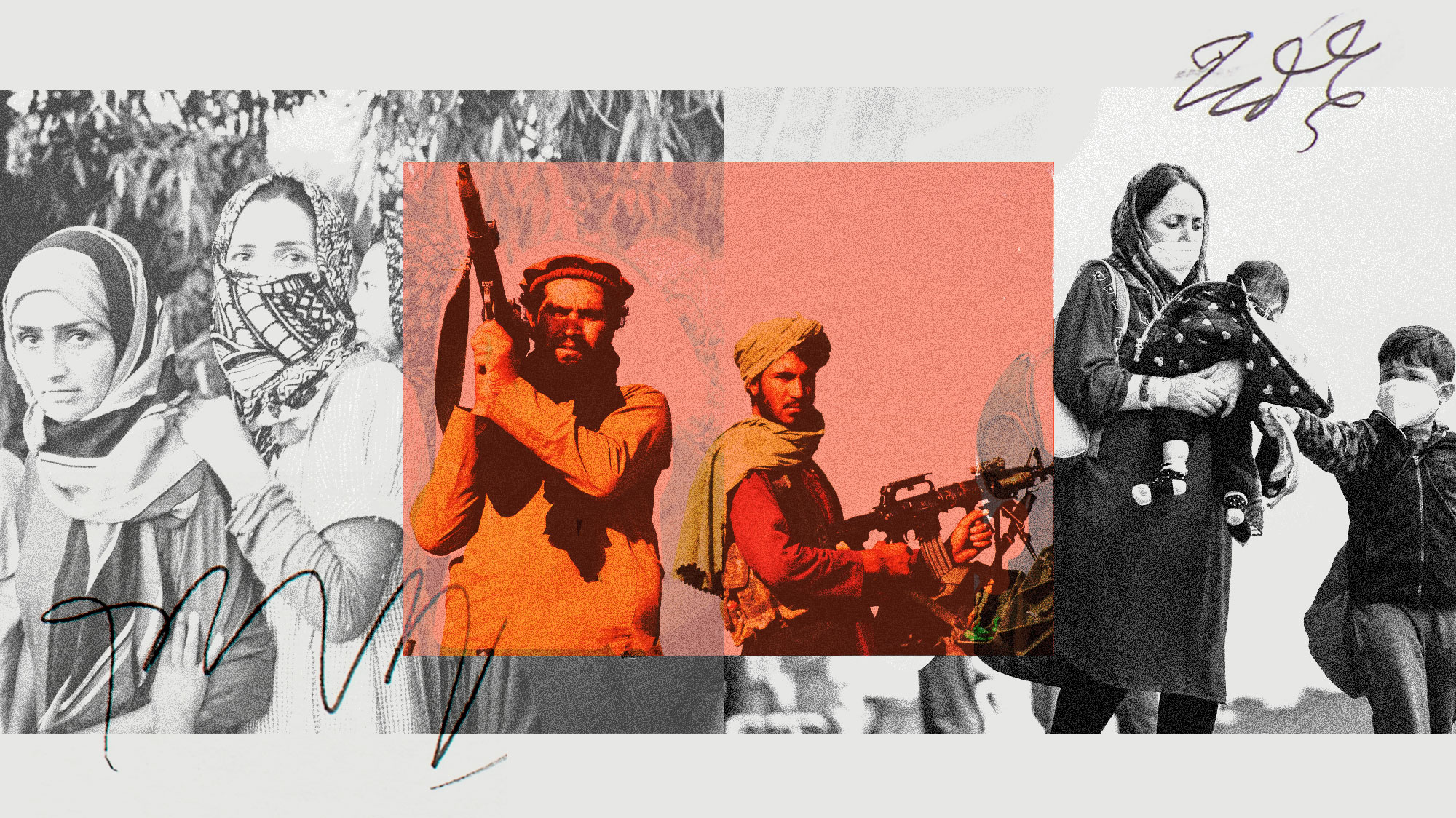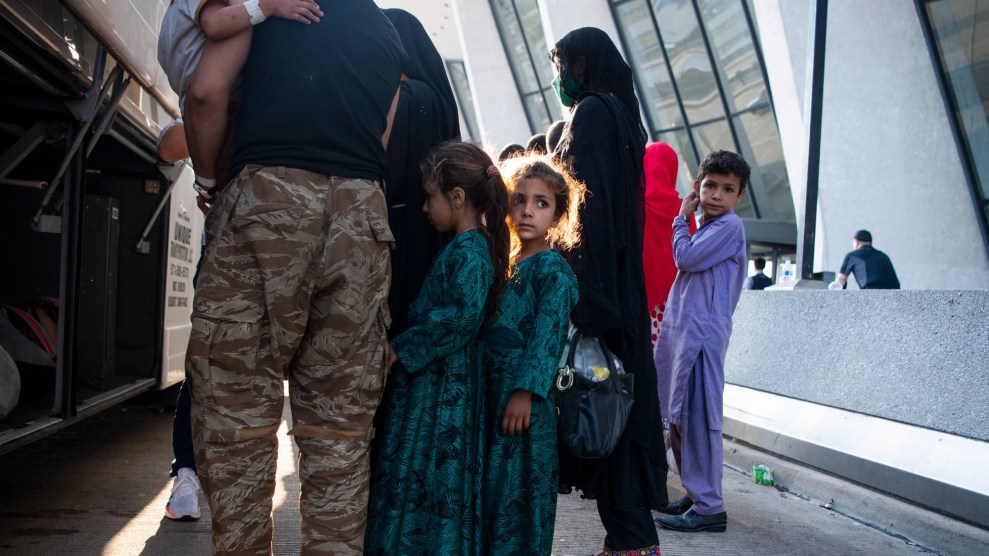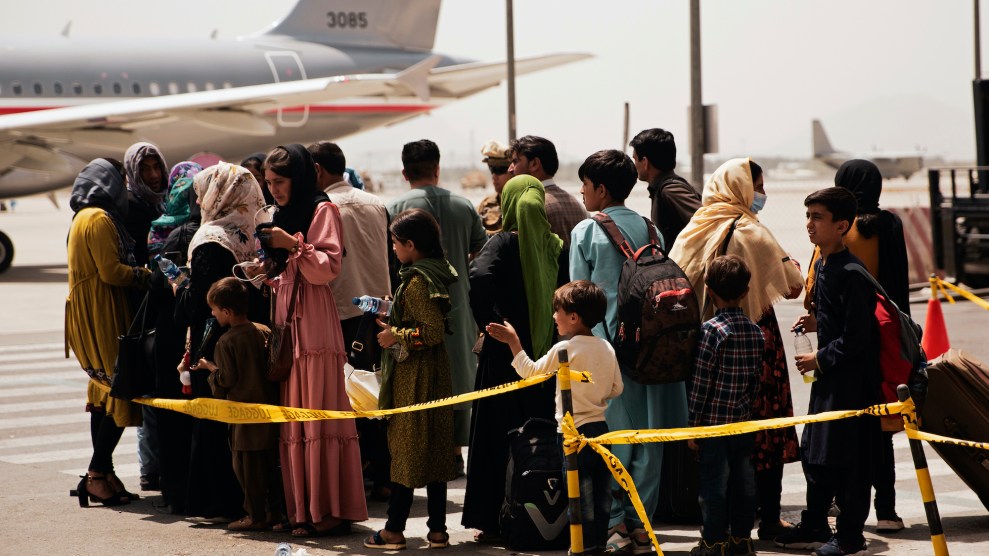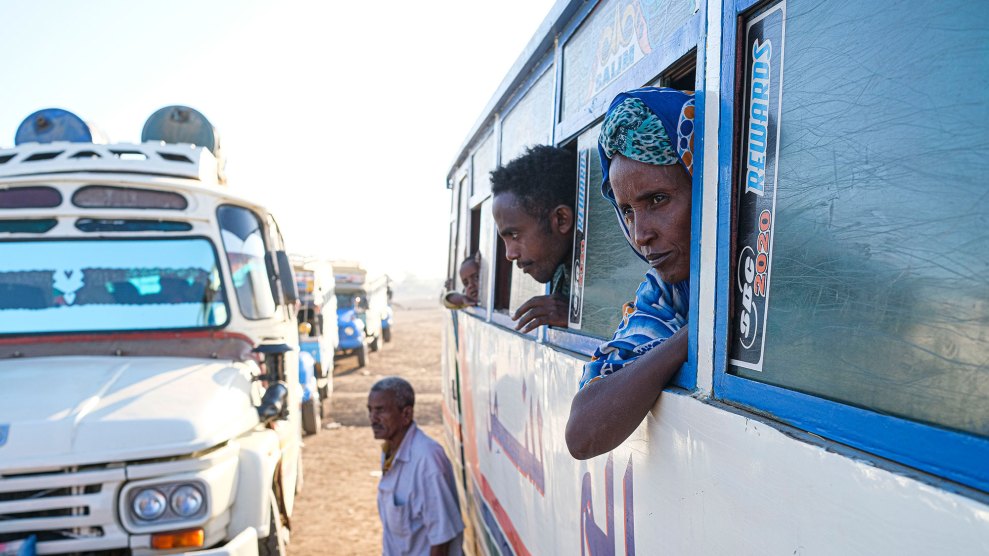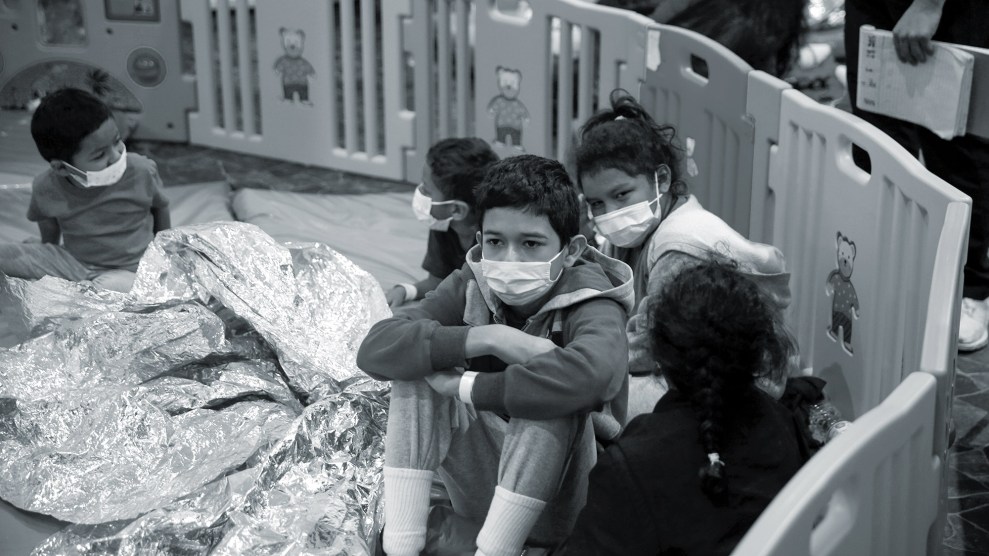Weeda has had to leave her home twice in the past few years, each time without saying goodbye to her friends or family.
The second time was this fall, when the 25-year-old Afghan arrived in Berkeley, California. It was somewhat surreal to settle into a rented room in an apartment with other young female professionals, while she watched the fall of Kabul unfold on social media and TV along with the rest of the world. She was thankful to be in the United States, but her gratefulness was overshadowed by the fear for her family back in Afghanistan: One of her brothers was hiding to avoid being killed by the Taliban, and one of her sisters was at risk of being forced to marry a Taliban fighter.
“They’re suffering,” Weeda tells me recently on a video call. “And if anything happened to my family I would never forgive myself.”
Weeda, who asked to be identified only by her first name to protect her family’s identity, hasn’t actually seen her mother, siblings, and other relatives since she left Afghanistan in 2019. She had been working for a US company that provided security for Americans in Afghanistan, but she tells me that she wishes she had never worked with the United States because of the increased vulnerability it has brought to her family now that the Taliban has taken over.
Her family can’t access the money she left in a bank account because many banks are closed, and she has heard that those that are open have Taliban guards checking who goes in and out. Weeda also isn’t able to stay in touch with them much because access to data on cellphones is limited, the internet is unreliable, and “when you go out and the Taliban see you, they will stop you, and they will check you everywhere. They check your phone and what’s inside your phone,” she says. “For that reason, I don’t want to call them or leave proof of my number from America. It will be very dangerous.”
The worrying is constant and the helplessness overwhelming. But even as it consumes Weeda and too many others Afghans like her who are experiencing something similar, what’s happening in their country has essentially fallen off the radar for most people. Heartbreaking images of desperate Afghans trying to flee, and angry coverage of the chaotic US withdrawal, are no longer consuming US news—and Weeda can’t help but want to remind people about the “mess” Americans left: “It’s not over and they have to fix what they did.”
As part of Operation Allies Welcome, the United States has helped evacuate about 83,000 Afghan nationals, American citizens, and legal permanent residents from the country, according to the Department of Homeland Security; about 40 percent of this group worked for or on behalf of the US government or are family members of people who did. Since August 31, when US troops officially withdrew from Afghanistan, the Department of State has been mostly focused on facilitating evacuation of US citizens and US green card holders, and has succeeded in getting almost 1,000 of them out of the country. But all this work has still left behind many Afghans who have affiliations with the US government; a State Department spokesperson did not provide any specific numbers, only telling me that they are facilitating their departure.
In the meantime, thousands of Afghans remain at risk of retaliation by the Taliban. And it’s gotten significantly more challenging for those still on the ground to find a way out; passport offices are closed, embassies and consulates from the US and other Western countries have shut down, and all US diplomats have left Afghanistan.
Madi Williamson, executive director of In-Sight Collaborative, an NGO that provides holistic support to forcibly displaced people, says the specific programs to help bring Afghan refugees to the US—namely the Special Immigrant Visa, which is available to Afghan nationals who worked to support Americans on the ground—have long been “a disaster,” even before Americans evacuated the country. Since then, she says, they have gotten exponentially worse. SIVs were first made available in 2009, when Congress passed the Afghan Allies Protection Act. At least 250,000 Afghans have been eligible for these visas, but only 16,000 have been issued since 2014, with another 18,000 pending in the pipeline. Ahead of the US deadline to leave Afghanistan, on July 30, the State Department made available an additional 8,000 SIVs for Afghans.
Making matters even worse is that the entire refugee system was upended by Trump. As I reported earlier this year, the Trump administration made a mess of the refugee resettlement program and slashed the annual refugee cap to a historic low. Before the previous administration, “overseas refugee processing was fully staffed and fully funded,” Eskinder Negash, the president and CEO for the US Committee for Refugees and Immigrants, told me last spring. “For the past four years we have dismantled the refugee program overseas. In addition to that, we have COVID.” Trump lowered the refugee cap to 18,000, down from what had hovered around 75,000 since the year 2000. The Biden administration raised the cap to 65,000 for fiscal year 2021, and 125,000 for fiscal year 2022, which began in October. But raising the caps alone doesn’t speed up the process of getting people here. Last fiscal year, only 11,411 refugees were admitted to the US, according to data from the Migration Policy Institute.
The situation in Afghanistan “is incredibly complicated,” says Williamson. She is also a registered nurse who has specialized in migratory health abroad, and was speaking with me recently from Turkey, where she has been involved in remote evacuation efforts for Afghans. “The fall of Afghanistan is a microcosm of what structural violence can look like at an international level when different powers are inflicting this type of chaos and perpetuating this type of chaos on an entire nation.” She adds that for Afghans, “the amount of suffering is just unbelievable. There’s not only this emotional toll of losing your country and worrying about your family, there’s also a huge amount of survivor’s guilt for people who have gotten out.”
Weeda feels some of that survivor’s guilt. To help rescue her family, she has reached out to “all the resources [she] knew” within refugee resettlement organizations, and others she met who worked with the US military, but “they couldn’t do anything,” she tells me.
She also reached out to local California Reps. Barbara Lee and Jackie Speier. She wrote a letter that ended with: “I am asking the Government of the United States to help my family and bring them here. Their lives depend on your urgent action. I humbly ask you to protect my family from the darkness that awaits them. From the bottom of my heart, Weeda.” Lee’s office emailed her recently “to inform me they sent the inquiry on behalf of me about my brothers’ case.” She hasn’t heard anything further. (When I followed up with Lee’s office, it did not comment on Weeda’s case but wrote that it “has responded to a high volume of requests for help with evacuations, Special Immigrant Visas, and other resettlement requests from Afghan nationals, and is continuing to work on behalf of those constituents to move those cases forward.”)
Williamson didn’t explicitly say Weeda’s family situation was all too familiar, but it was impossible not to get that sense. “We have an unknown amount of time until these people [who have or whose families have worked with the US] who are targeted by the Taliban are found,” Williamson says. “And they’ll either disappear or are confirmed executed.”
Many people would consider Weeda one of the lucky ones; she was able to settle in California after she got a Special Immigrant Visa. But the reality is not that simple. When I tell her that it must be a heavy burden to carry, thinking about her family members who remain hidden in Afghanistan—“fearful, hopeless, and unsure what will happen to them”—while she’s safely here in the United States, she tells me that it is, but she’s strong. She’s had to be since she was young.
When Weeda was a teenager, her father died and “that was the beginning of the hard times,” she says. “A father is always a protector, especially for girls.” So with her father gone, other members of her family and people in her village became even more involved in her life and opposed her education. Luckily, she says, her mother was “open-minded enough” to support her studying law at a university. But she still had to keep it hidden. Every morning, before most people woke up, Weeda started her walk to school barefoot, with her shoes in hand to be as quiet as possible. “If I made sounds then the neighbors and everyone would watch me,” she says. Once she made it out of her street she would put her shoes on and walk head down, wearing a hijab, taking different routes to avoid being recognized. She did this for years while going to school, and later, after she graduated, each day as she left for work, sneaking around “like a thief.”
By the time Weeda was in her early 20s, her family was struggling financially, so she got a job working for a US company that provided security for Americans in the country. Two of her brothers also started working for US companies after that.
Then, in 2019, extended family members and villagers began planning an arranged marriage for her with someone she had never met before. Unlike other arranged marriages in her family, hers wasn’t with a man from a family they knew, or with an acquaintance. “It was a man I had never seen before,” she tells me, adding that perhaps that would not have been the case if her father had been alive. She thought about her options; fleeing seemed like the only way out. She had first requested an SIV to come to the United States early that year, but the process was moving slowly. So she asked her company to relocate her outside of Afghanistan; they said they could move her to Turkey.
By the fall of 2019, her company had gotten her a Turkish visa and a plane ticket—but she told nobody else about her plans. She got ready one morning, just like any other day before going to work. Hours later she was at the airport with nothing but the clothes she was wearing, and from there she left home for the first time.
“It’s hard remembering that day,” Weeda tells me before taking a pause to fight the tears running down her face. “I couldn’t even say goodbye.” That was the last time she saw her family.
When she arrived in Turkey later that day, she called her mother to explain what she had done: “I told her, ‘Now if they come, you can tell them she’s not my daughter,’ so she wouldn’t take responsibility for me leaving.” Weeda says her mom understood why she left without saying goodbye and knew that it was best for everyone’s safety.
While in Turkey, she continued working for the US security company and started studying for a master’s degree in international relations and political science. Turkey wasn’t really home, but it was her new safer life. Then, in August, with the impending deadline of US troops withdrawing from Afghanistan approaching, Weeda’s sense of safety disappeared. “I knew they would come for my family because they knew who we were,” Weeda says. “The first thing that came to my mind [when the Taliban took over] was that they will go and take my sister. She’s 19 and it could happen anytime.”
She tried to get her family Turkish visas, but had no luck. And just as the chaos crested in Afghanistan in mid-August, she heard from the US government that her SIV had been approved.
“It all happened so quickly,” Weeda says. She was starting a new semester in school but thought she’d have a better shot at getting her family out of Afghanistan once she made it to the United States. So, she quickly made plans to leave home again. She had a friend from college who lived in Northern California and who told her to use her address on her US paperwork. In early September, within a couple of days of getting her visa, Weeda left Turkey. Another departure without a goodbye.
President Joe Biden and his administration insist that their work getting Afghans out is not done. The president has directed DHS to “coordinate ongoing efforts across the federal government to support vulnerable Afghans, including those who worked alongside us in Afghanistan for the past two decades, as they safely resettle in the United States.” But that is little solace to the many Afghans who remain at risk and are stuck.
“Every single address to the nation that Biden made made me want to scream because there’s no way that you can shape this as anything other than a massive catastrophe and an epic failure,” Williamson tells me. “This has been one of the most traumatic things I’ve ever witnessed, the helplessness and the collective grief is just unreal and I’ve worked with Syrians and Palestinians. But I feel like this was a really unique situation because we all saw it coming and we had much higher hopes for how this was going to be handled.”
As for those more than 80,000 Afghan nationals who the US government did help get out, about 37,000 are at Department of Defense “installations” on military bases across the United States, and approximately 3,300 people remain at “lily pad” locations overseas, a DHS spokesperson tells me. To help ease resettlement bottlenecks, the Biden administration is also trying something new for those who have already been evacuated to the United States: private “sponsor circles.” Last month DHS announced that groups of five or more private citizens could apply together and sponsor Afghans who are on US military bases and who have opted in for the match.
This move is a pretty significant change in how the US refugee resettlement program has traditionally worked. The Sponsor Circle Program is a joint initiative between the US State Department and the Community Sponsorship Hub, a nongovernmental project of the Rockefeller Philanthropy Advisors. The idea behind the circles is that the existing resettlement network that was established back in 1980, following the fall of Saigon, was under a serious amount of strain and its capacity had been reduced “significantly and intentionally by the previous administration,” says Danielle Grigsby, the hub’s co-founder. The plan to connect groups of private sponsors to refugees had already been in the works, she tells me, but was kicked into high gear and launched on an emergency basis to respond to the need in Afghanistan. So far, Gigsby has been “overwhelmed by the response” from private citizens, though she declined to share how many people are in the sponsor application process; she says the first pairings will begin this month. Eventually, she would like to see this model of private sponsorship applied beyond the Afghan refugee population.
Weeda welcomes the news of such a program, though it still won’t help people stuck in Afghanistan. Even her brothers, who worked with a US company and have already gotten initial approval from the US government to start their SIV applications, don’t know how to move their cases forward since the US Embassy in Kabul has been abandoned.
“When Kabul fell, nobody was anticipating that, I don’t need to echo that sentiment, that is easy to see,” Williamson tells me. “But what I wasn’t expecting is the complete mismanagement of the international community.”
When I ask Williamson what Americans need to understand about the ongoing situation in Afghanistan, she brings up the long-term consequences that will be caused by this mass trauma. “For a lot of people I’m sure it was like, ‘Oh, America’s never-ending war has ended terribly and this is awful with people falling from airplanes and babies being handed over razor wire.’ But they didn’t think about the lasting traumatic effects this has on people.”
Weeda would like to think in the long term. But right now, she can’t—even as she gets into a routine in her new home, working full time and finishing her master’s online. She’s focused on her family’s survival today. Then tomorrow. Then the next day. She’s heard from many of her former colleagues and her brothers, all of whom say they wished they never worked with US companies because at least they wouldn’t be such targets for the Taliban.
“What the USA did was a big mistake. Personally, I can say that what they did was wrong,” Weeda says. “They left behind thousands of people who are eligible. They left them and they do not care about their suffering.”
Top image: Mother Jones illustration; Nicolas Economou/NurPhoto/Getty; Javed Tanveer/AFP/Getty; Kent Nishimura/Los Angeles Times/Getty
